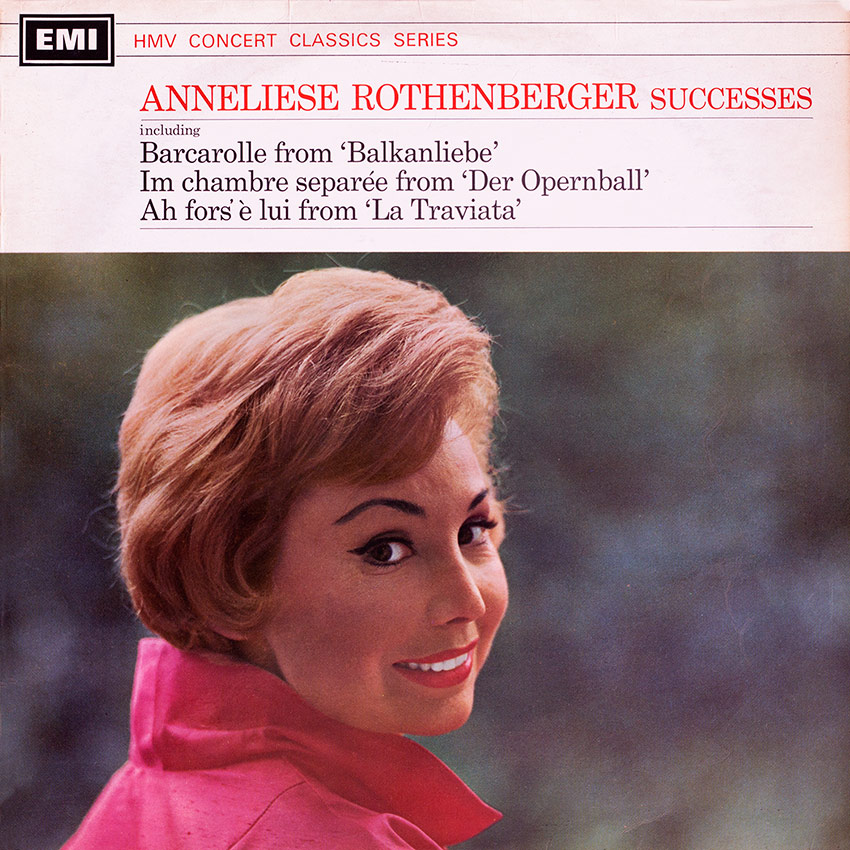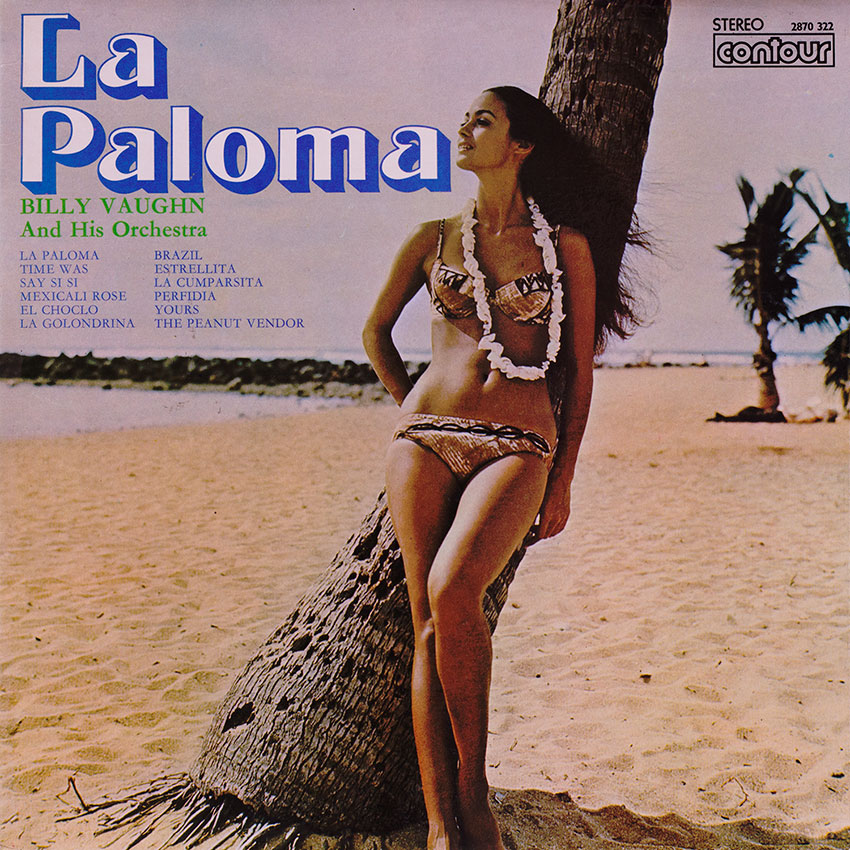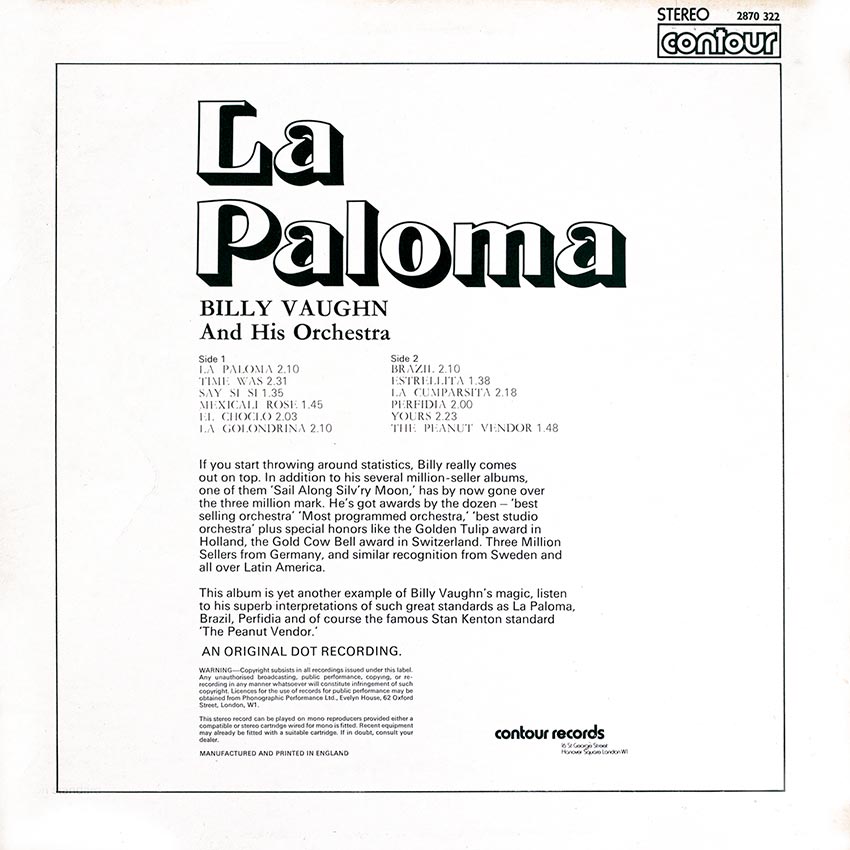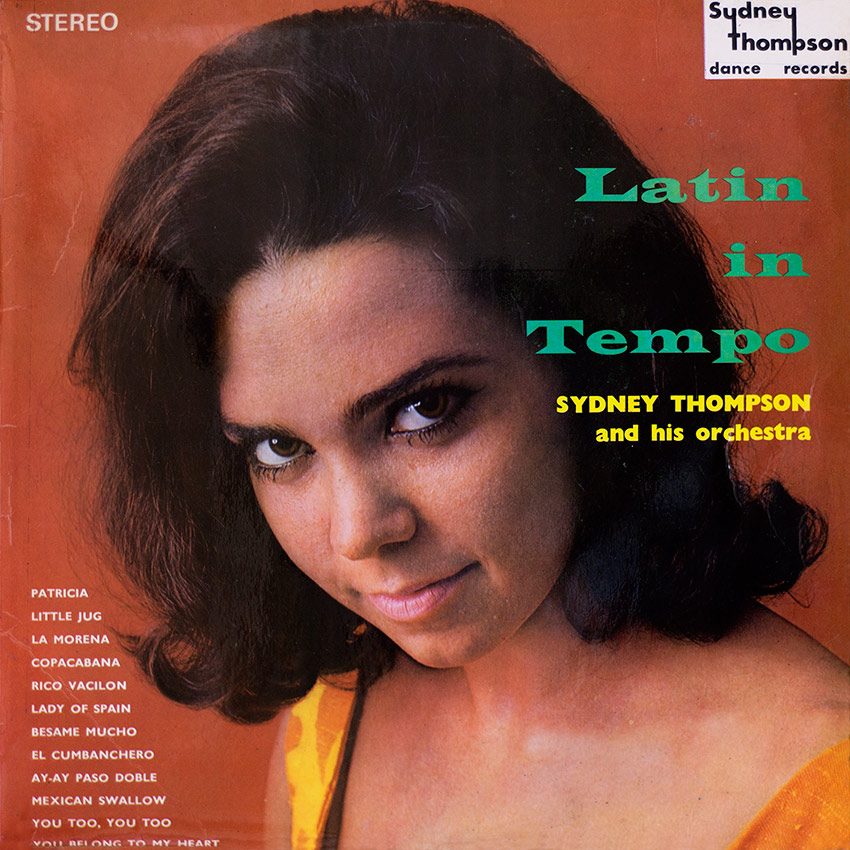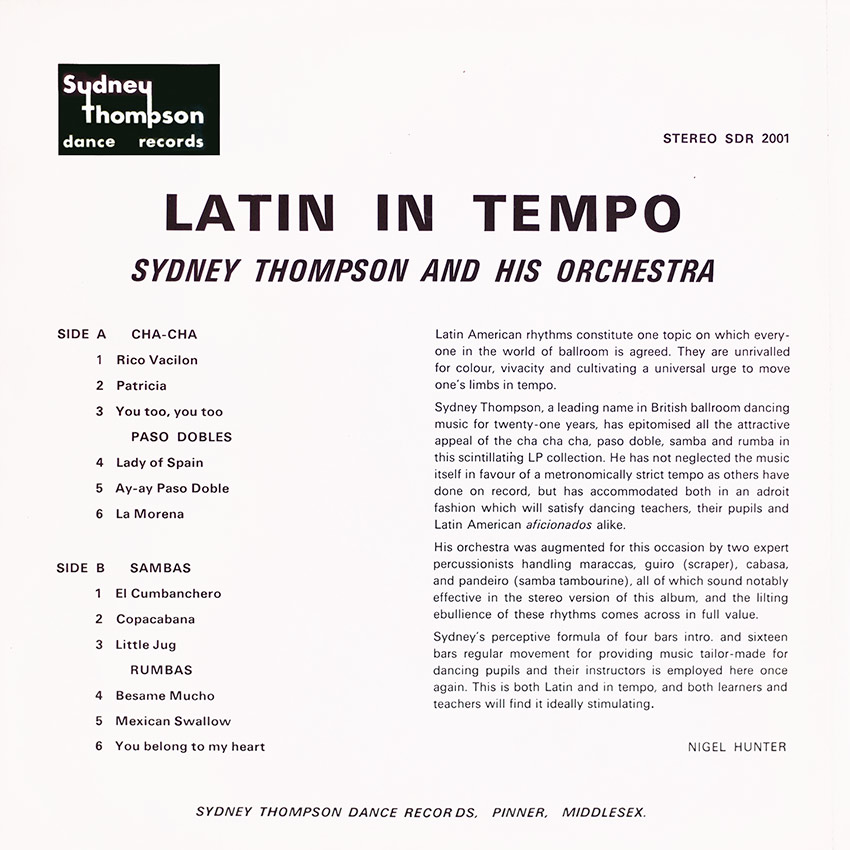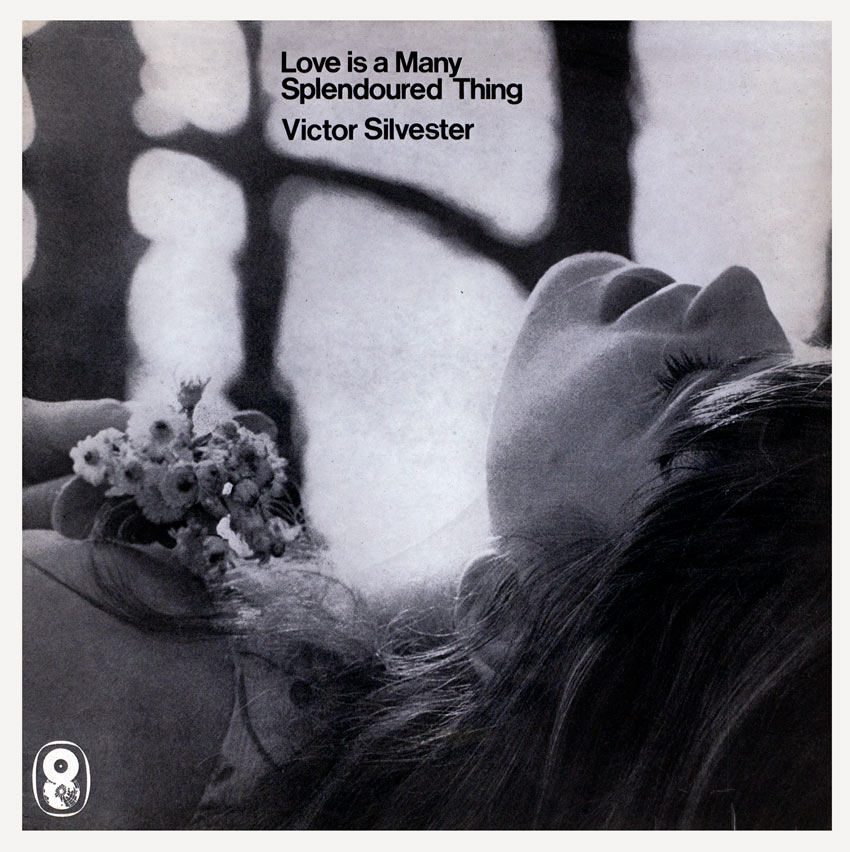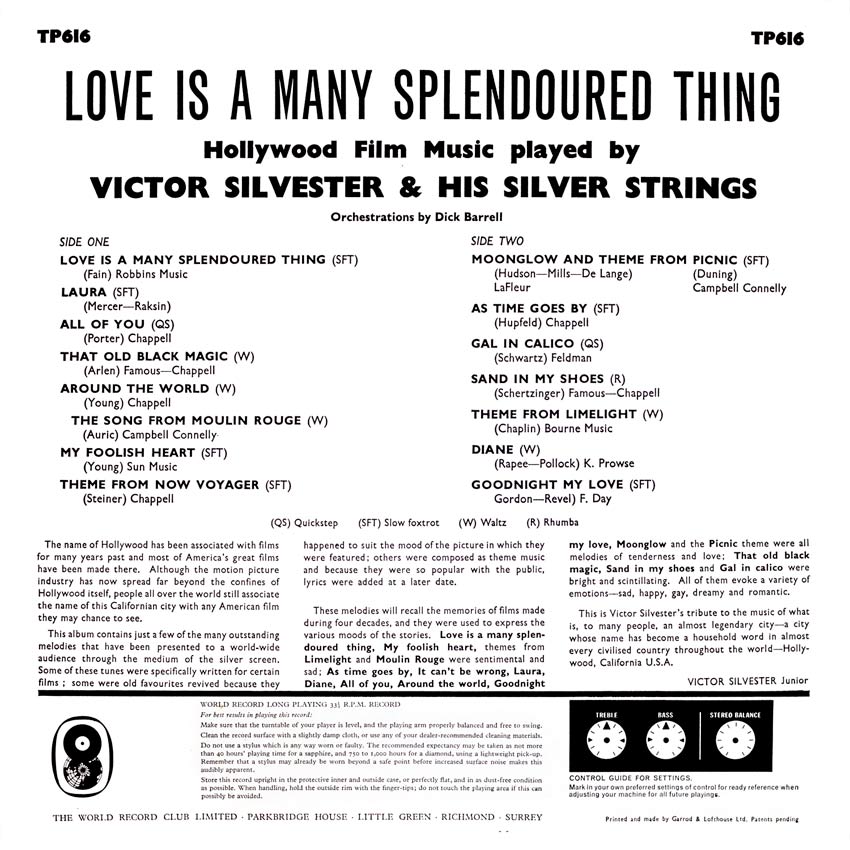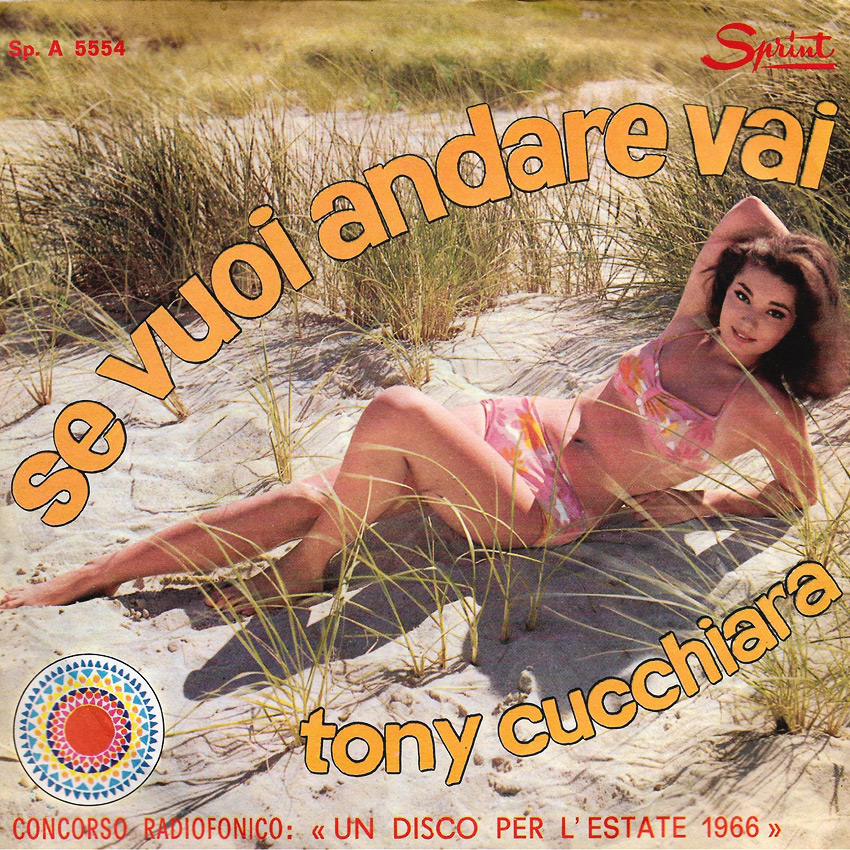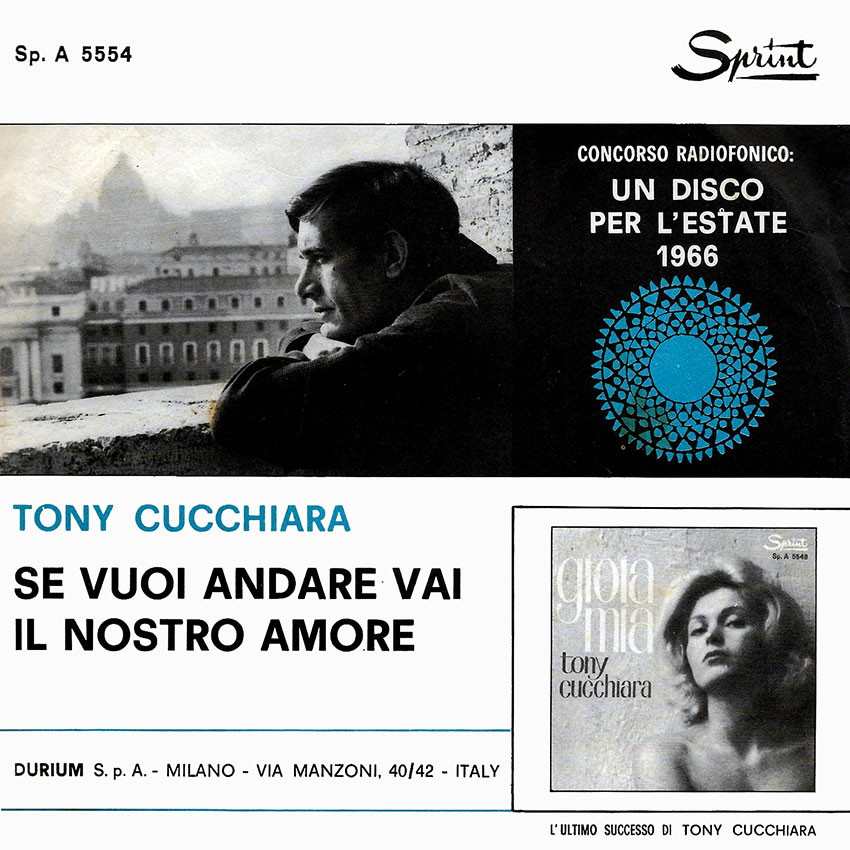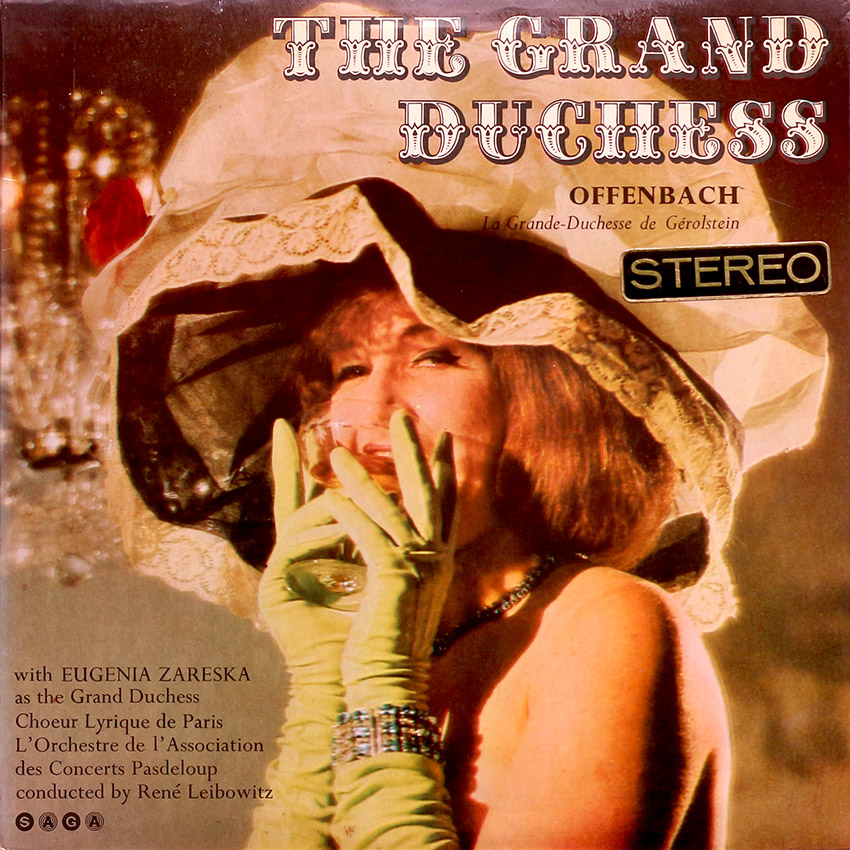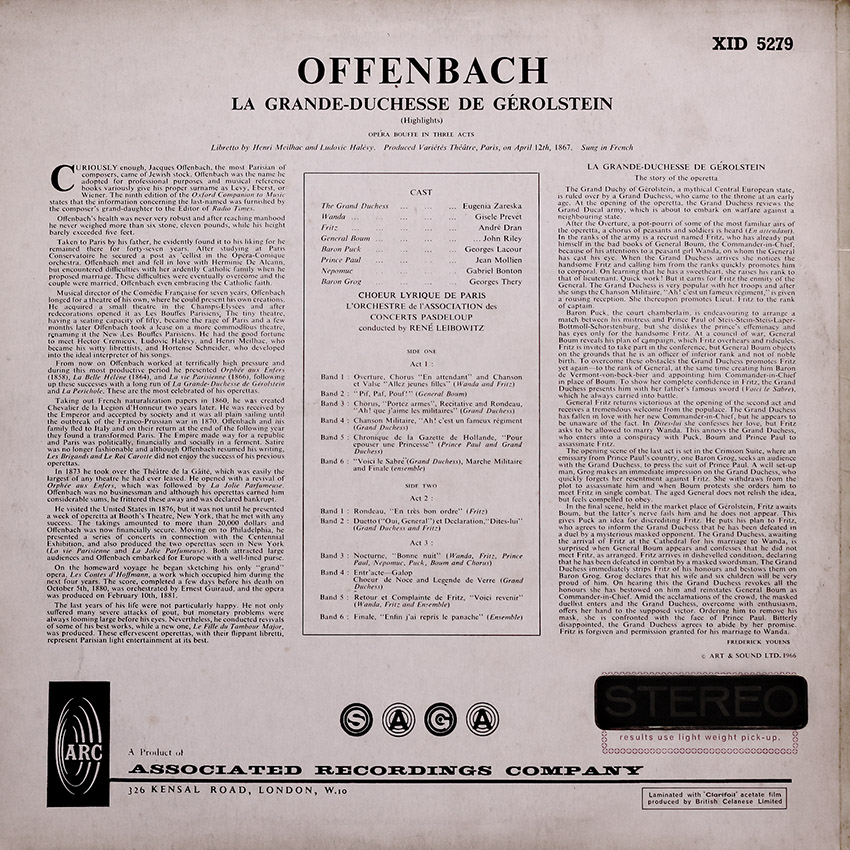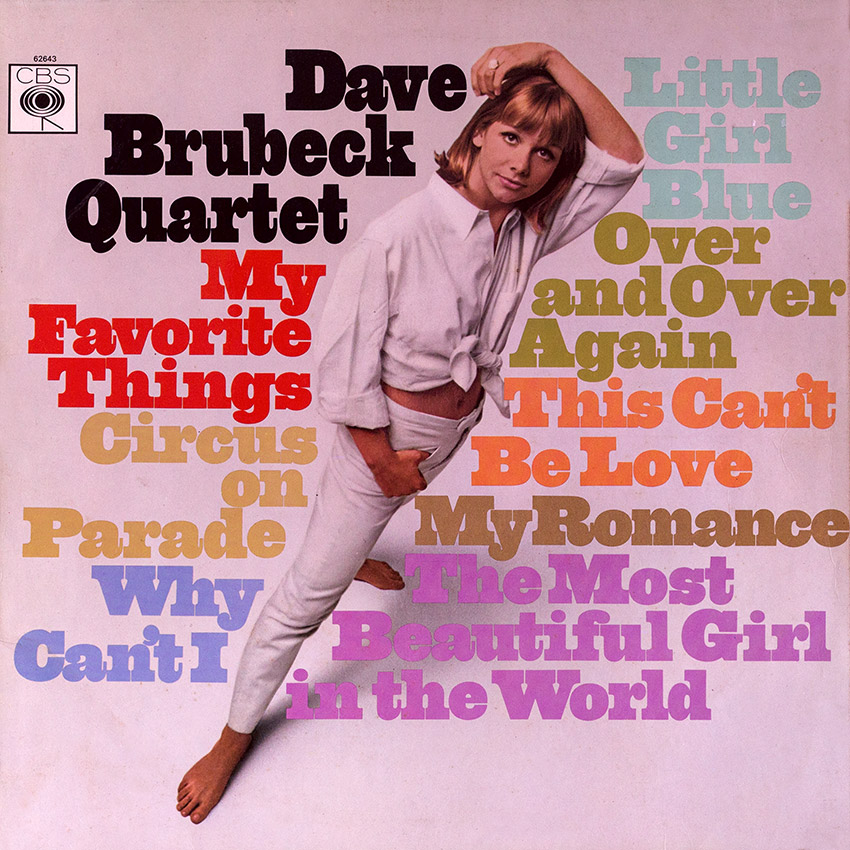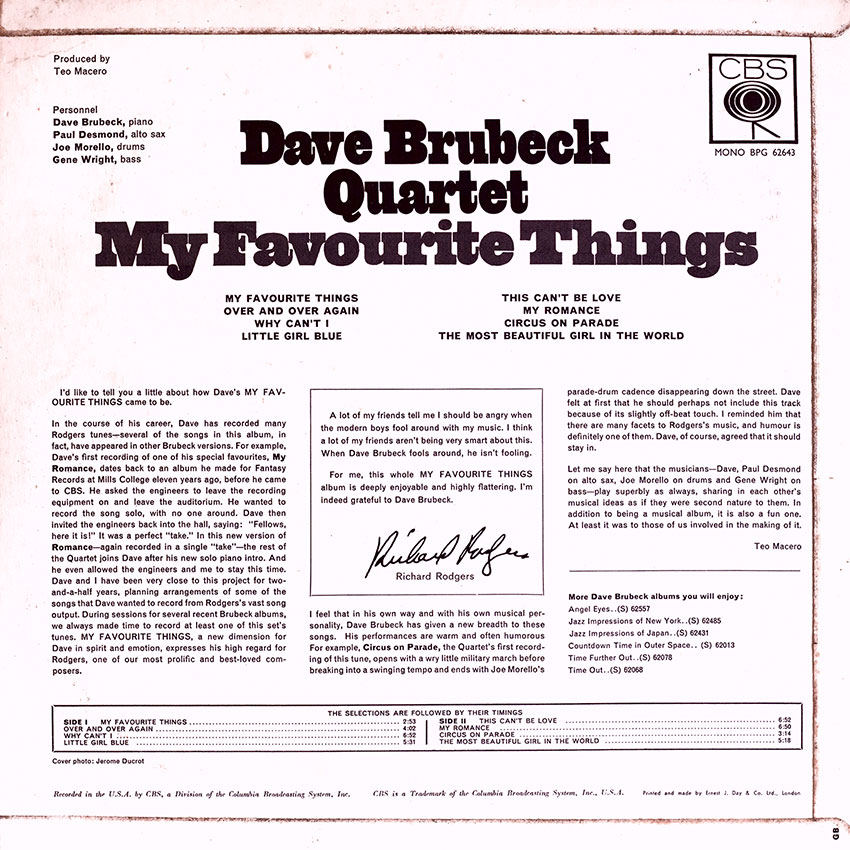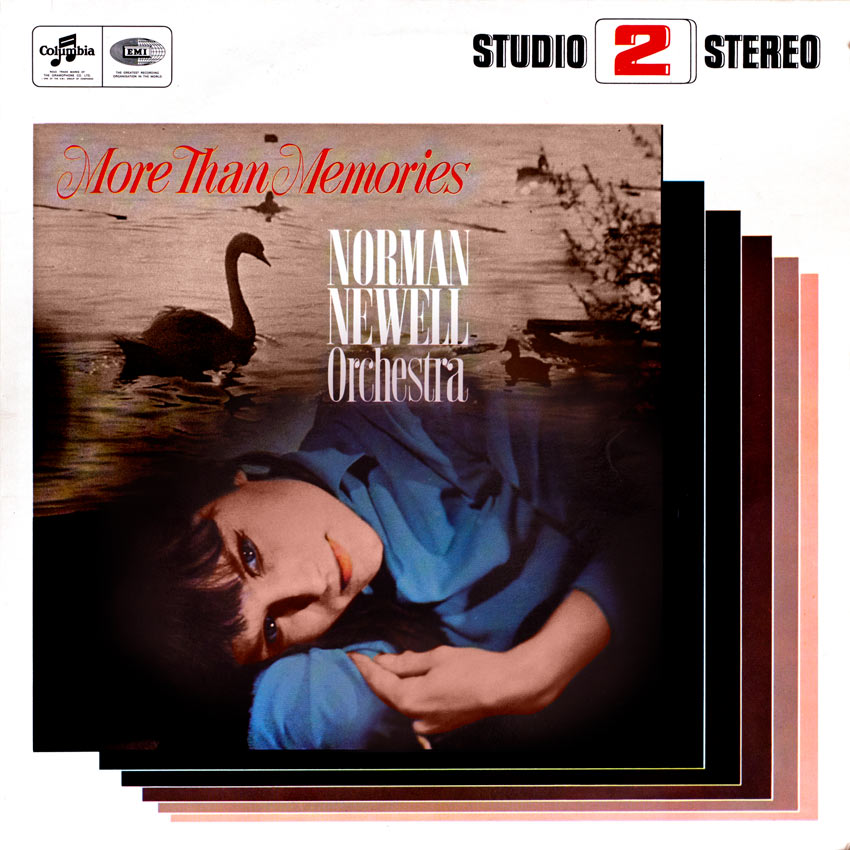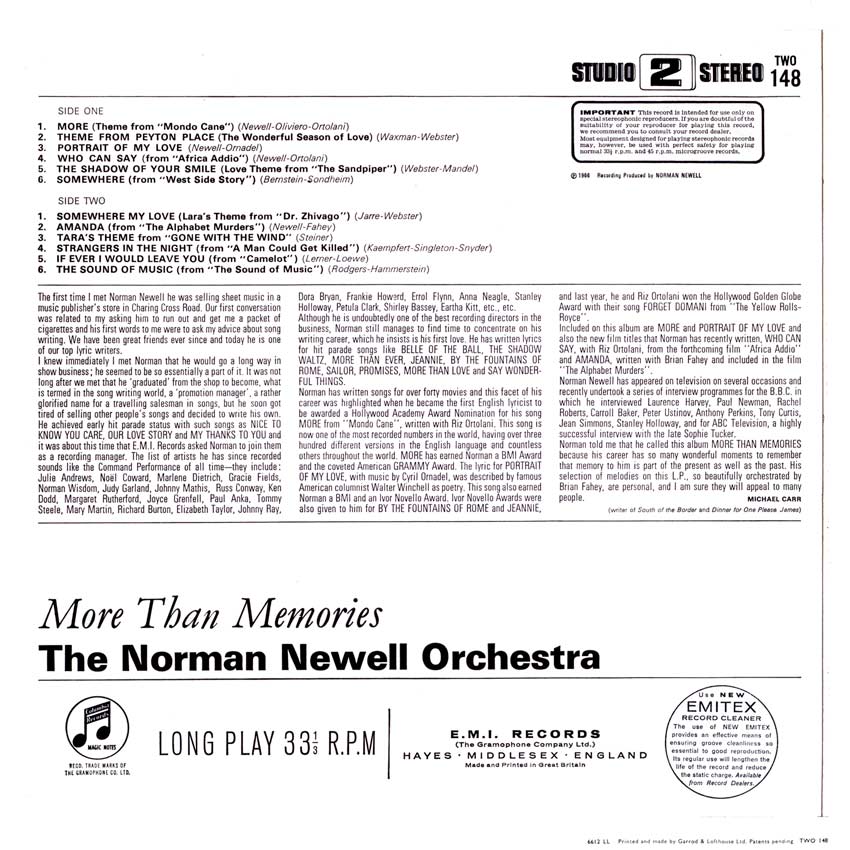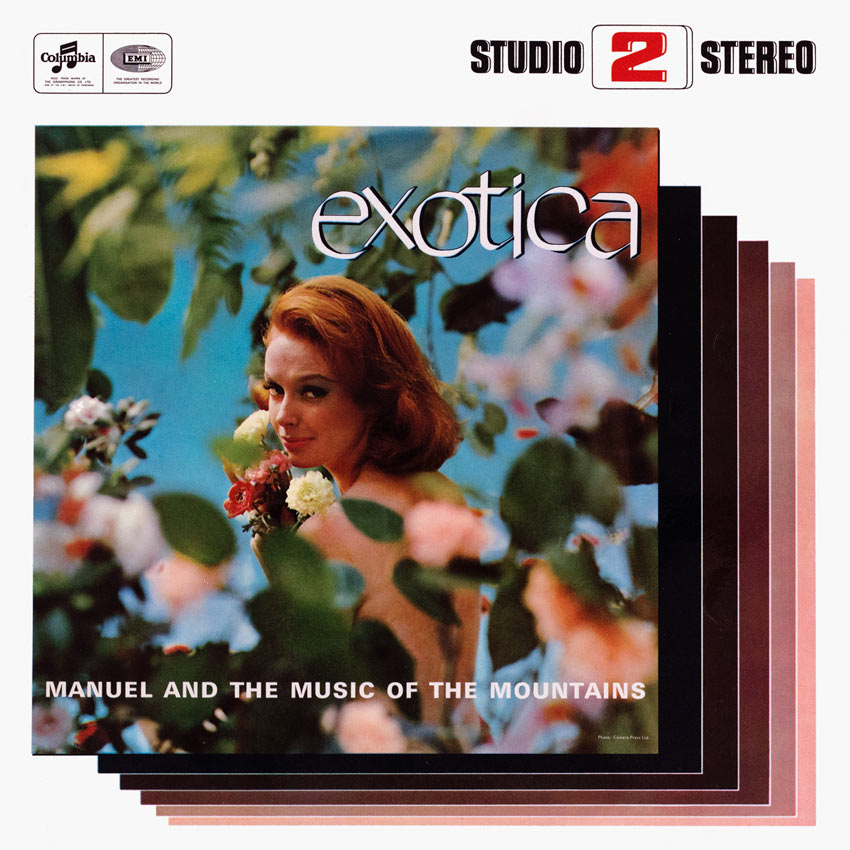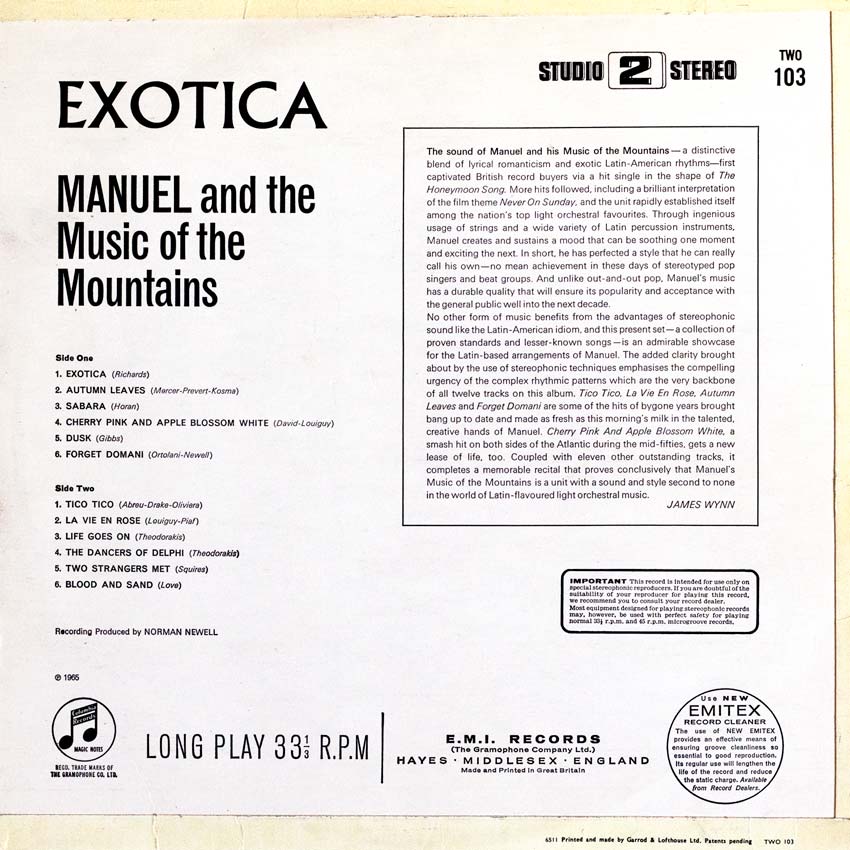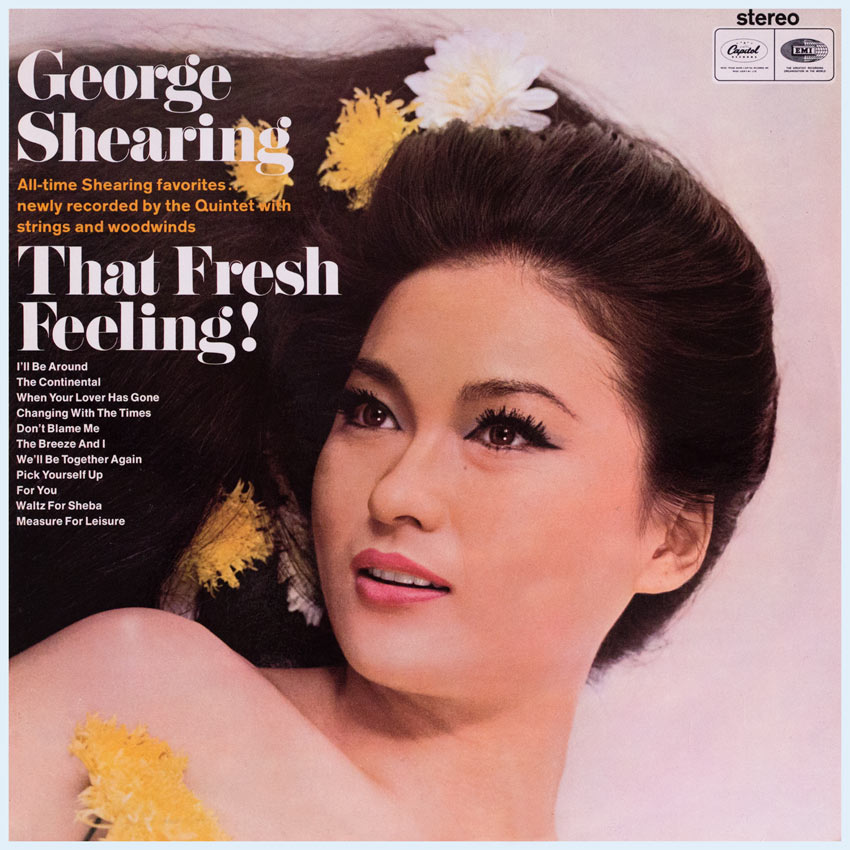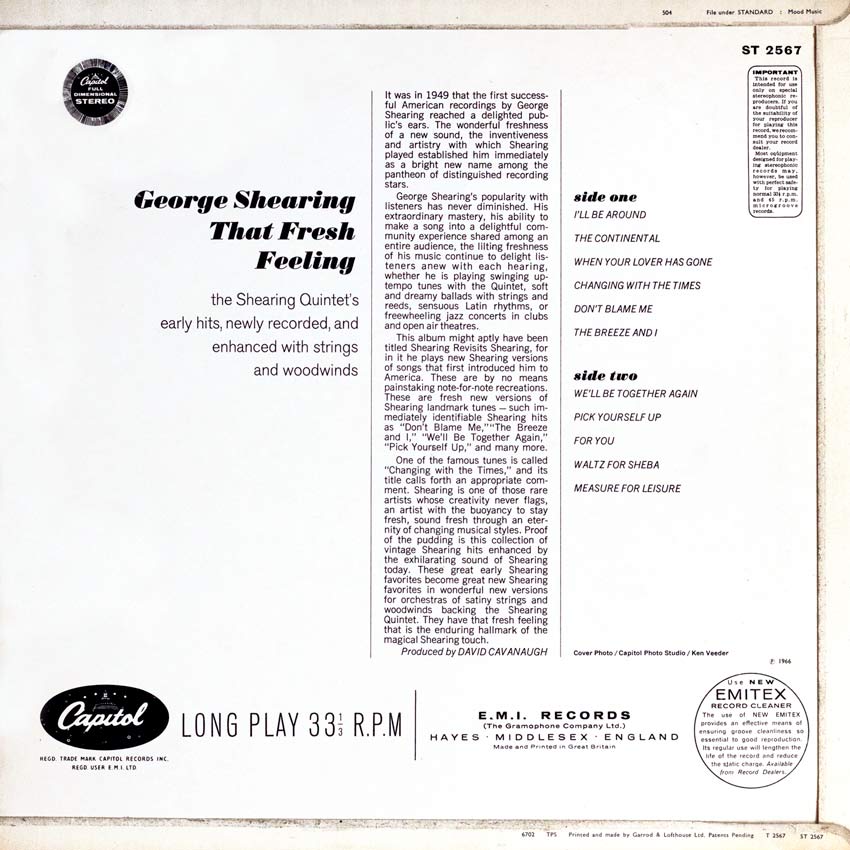Anneliese Rothenberger – Successes
Sleeve Notes:
Anneliese Rothenberger, who endeared herself to thousands who watched Eric Robinson’s BBC TV programme “Music for You”, has in a very few years established herself as an international artiste with a wide repertoire ranging from operetta to Richard Strauss.
© Peter Branscombe, 1966
SIDE TWO with ORCHESTRA OF THE GERMAN OPERA, BERLIN conducted by HANS ZANOTELLI (C) 1963) Band 1-0 war’ ich schon mit dir vereint (Fidelio’ Act 1) (Sonnleithner and Treitschke—Beethoven) Marzelline, the head gaoler’s daughter and courted by his assistant Jaquino, has thoughts only for the ‘youth’ they know as Fidelio, who has managed to obtain employment in the prison. O war’ ich schon mit dir vereint, / und diirfte Mann dich nennen ! / Ein Madchen darf ja, was es meint, I zur Halfte nur bekennen. I Doch wenn ich nicht erroten muss, / ob einem warmen Herzenskuss, / wenn nichts uns stort auf Erden— / Die Hoffnung schon erfullt die Brust, / mit unaus-sprechlich siisser Lust; / wie gliicklich will ich werden! Die Hoffnung schon, usw. In Ruhe stiller Hauslichkeit / erwach ich jeden Morgen, / wir griissen uns mit Zartlichkeit, / der Fleiss verscheucht die Sorgen. / Und ist die Arbeit abgetan, / dann schleicht die holde Nacht heran, / dann ruh’n wir von Beschwerden. Die Hoffnung schon ethillt die Brust, usw. O were I now united with you, | and might call you Husband! | What it would mean, a maiden can only half admit. | But when I do not have to blush | at a warm and heartfelt kiss, / when nothing on earth can disturb us – | Hope already, fills my breast | with inexpressibly sweet delight: | how happy I shall be! | Hope already fills, etc. In the peace of quiet domesticity | I shall awake each morning, | we shall greet one another tenderly, | toil will banish care. / And when the work is finished, / then blessed night will creep on, | then we shall rest from our troubles. Hope already fills my breast, etc.
© William Mann, 1962
Band 2—Einst traumte meiner sel’gen Base (Der Freischiitz’ Act 3) (Kind—Weber) Agathe, full of foreboding, is preparing for her wedding to the forester, Max, which can only take place if he is successful in a shooting contest on the morrow. She recounts her dreadful dreams to her cousin Annchen, who gently derides her fears with an anecdote—Annchen: Einst traumte meiner sel’gen Base : / die Kammertiir eroffne sich, / und kreideweiss ward ihre Nase, / denn naher, furchtbar nailer schlich / ein Ungeheuer mit Augen wie Feuer, / mit klirrender Kette, es nahte dem Bette, / in welchem sie schief: / ich meine die Base mit kreidiger Nase, / und stohnte, ach ! so hohl ! / und achzte, ach ! so tief! / Sie kreurte sich, rief, / nach manchem Angst–und Stossgebet : Susanne! Margaret! / Und sie kamen mit Licht, / und—denke nur—und— / erschrick mir nur nicht— / und—graust mir doch ! Und / der Geist war : Nero, der Kettenhund ! Du zurnest mir? / Doch kannst du wahnen, / ich fiihle nicht mit dir? / Nur ziemen einer Braut nicht Tranen. Triibe Augen, Liebchen, taugen / einem holden Brautchen nicht, usw. / dass durch Blicke sie erquicke, / und begluckte, und bestricke, / alles um sich her entziicke, / das ist ihre schonste Pflicht. Lass in &len Mauern, / Biisserinnen trauern, / dir winkt ros’ger Hoffnung Licht ! / Schon entziindet sind die Kerzen / zum Verein getreuer Herzen, | schon entzfindet sind die Kerzen, / dir winkt ros’ger Hoffnung Licht! | Holde Freundin, sage nicht! usw. My defunct aunt once dreamt / the door of her room flew open, / and her nose turned chalky white, | for nearer, frighteningly nearer, crept / a monster with eyes of fire. / With rattling chain it approached the bed / on which she lay asleep: | I mean my aunt with chalky-white nose, / and groaned, oh! so hollowly / and moaned, oh! so deeply! | She crossed herself and called, | in dreadful anguish—and quickly said her prayers: Susan! Margaret! | and they came with a light, | and—just think—and— I don’t shriek— | and don’t shudder! And I the ghost turned out to be—Nero, the watchdog! Are you angry with me? Can you really imagine | I don’t feel for you? | Only —a bride in tears isn’t right. Dejected looks, dearest, don’t suit I a lovely bride at all, etc. | for through her glances she must refresh | and delight and captivate |and enchant all around her, I that is her loveliest duty. Within cloistered walls / let penitents mourn, I Hope’s rosy light beckons you! | The candles are already lit | for the union of true hearts. | The candles are already lit. | Hope’s rosy light beckons you! / Sweet friend, do not worry! etc. Peggie Cochrane, 1960 Band 3—Tutte le feste al tempio (Rigoletto’ Act 2) (Piave— Verdi) Gilda tells her father, the hunchbacked jester Rigoletto, the circumstances of her abduction by his master, the Duke. Although distraught and dis-honoured, Gilda is hopelessly infatuated by her seducer. Tutte le feste al tempio mentre pregava Iddio, bello e fatale un giovine offriasi al guardo mio … se i labbri nostri tacquero, dagl’occhi it cor parlo. Furtivo fra le tenebre I sol ieri a me giungeva . . . / sono studente povero, / commosso mi diceva, / e con ardente palpito / amor mi protesto. / Parti .. . it mio core aprivasi a speme piu gradita, / quando improvvisi apparvero / color the m’han rapita, / e a forza qui m’addussero / nell’ansia piu crudel. Each holy day, at church, as I was saying my prayers, a handsome, striking youth came there, where I could see hitn. If our lips kept silent, our eyes spoke what our hearts were feeling. Only last night, for the first time | he secretly came to see me. / “I am a student, I am poor,” | he said with feeling. | Then, passionately, | he told me of his love. | He went away—my heart had opened | to a brighter hope, | when suddenly there appeared | the band who abducted me; | they brought me here by force. | I suffered the cruellest torment.
© Capitol Records Inc.
Band 4—Saper vorreste (‘Un Ballo in Maschera’ Act 3) (Somma—Verdi) The final scene takes place at a masked ball in the Governor’s residence where the conspirators have planned to murder him. Renato, his secretary, recognises Oscar the page by his perky manner and tries to prise from him the secret of his master’s disguise. The boy teasingly admits that he knows the answer, but will not tell.
Oscar. Saper vorreste / di che si veste, / quando 1’6 cosa / ch’ei vuol nascosa. / Oscar lo sa / ma nol dirk / tra la la ecc. / Oscar lo sa, ecc. Pieno d’amor / mi balza it cor, / ma pur discreto / serba it segreto. / Nol rapira / grado o belts, / tra la la ecc. / Oscar lo sa, / ma nol dirk / tra la la ecc. You’d like to know / what he’s wearing, | when that’s the thing / he wants kept dark. | Oscar knows, | but he’s not going to tell, | tra la la etc. / Full of love, my heart leaps wildly, / but ever discreet / keeps the secret. | Neither rank nor beauty I will discover it, | tra la la etc. / Oscar knows, | but he won’t tell, | tra la la etc.
Band 5—Volta la terrea fronte alle stelle (Un Ballo in Maschera’ Act 1) (Somma— Verdi) In the first act the Governor seeks Oscar’s views concerning Ulrica, a Negro sorceress whom the Chief JuStice wishes to banish. Oscar describes her arts, at the same time vigorously defending her. Volta la terrea fronte alle stelle! / come sfavilla la sua pupilla, / quando alle belle it fin predice / mesto o felice dei Toro amor, mesto, / felice dei Toro amor. / Ah. e con Lucifero d’accordo ognor! ecc. Chi la profetica sua gonna afferra, / o passi ‘| mare, vol’ alla guerra, / le sue vicende soavi, amare, / da questa apprende nel dubbio cor. / Ah 6 con Lucifero d’accordo ognor ! ecc. When she turns her dusky brow to the stars, | how her eyes flash like lightning | as she foretells the course of their loves | to the belles of the town, be it happy or sad, | be it happy or sad. | With Lucifer himself she has a pact! etc. Whoever touches her prophetic gown, | whether he plans to cross the sea or go off to war, | his future, his fortunes, be they bitter or sweet, | his doubting heart will learn from her. | Ah! with Lucifer himself she has made a pact! etc. © Capitol Records Inc.
Band 6—E strano ! e strano ! . . . Ah, fors’e lui . . . Follie! follie! .. . Sempre libera (La Traviata’ Act 1) (Piave—Verdi) The courtesan Violetta, touched by the declaration of love lately made to her by Alfredo, reflects on her longing to be truly the object of genuine love — but realises that it is folly for her to pretend to be otherwise than she is. In the background Alfredo can be heard singing beneath Violetta’s balcony of his love. E strano! e strano! In core scolpito ho quegli accenti! Saria per me sventura un serio amore? Che risolvi, o turbata anima mia? Null’uomo ancora t’accendeva— I 0 gioia ch’io non conobbi, esser amata amando ! E sdegnarla poss’io / per l’aride follie del viver mio? Ah, fors’e lui che (‘anima / solinga ne’ tumulti / godea sovente pingere / de’ suoi colori occulti! / Lui che modesto e vigile / all’egre soglie accese, / e nuova febbre accese, / destandomi all’amor. / A quell’amor ch’e palpito / dell’universo intero, / misterioso, altero, / croce e delizia al cor! Follie! follie! Dcliro vano e questo! Povera donna, sola, abbandonata in questo popoloso deserto che appellano Parigi. Che spero or piu? Che far degg’io! Gioire! di volutta ne’ vortici perir! Ah!— Sempre libera degg’io / folleggiare di gioia in gioia, / vo’ che scorra it viver mio / pei sentiri del piacer. / Nasca it giorno, oil giorno muoia, / sempre lieta ne’ ritrovi / a diletti sempre nuovi / dee volar it mio pensier. Alfredo: Amor, amor e palpito / Dell’universo intero — / Violetta: Amore. / Alfredo: Misterioso, altero, / croce e delizia al cor. / Violetta: Follie! follie! Ah si! Gioir! gioir! Alfredo: Amor e palpito, usw. Violetta: Ah! ah! il pensier! Il mio pensier. How strange! how strange! His words are burned upon my heart! Would a real love be a tragedy for me? What decisions are you taking, o my soul? No man has ever made me fall in love. O joy which I have never known—loving, to be loved! And can I scorn it for the arid nonsense of my present life? Ah, perhaps he is the one / whom my soul / lonely in the tumult, loved | to imagine in secrecy! | Watchful though I never knew, | he came here while I lay sick, / awakening a new fever, / the fever of love. | Of love which is the very breath I of the universe itself— |mysterious and noble, I both cross and ecstasy of the heart! Folly! all is folly! This is made delirium! A poor woman, alone, lost in this crowded desert which is known to men as Paris. What can I hope for? What should I do? Die in the whirlpool of earthly pleasures! Forever free, I must pass | madly from joy to joy, my life’s course shall be | forever in the paths of pleasure. | Whether it be dawn or dusk, / I must always live I gaily in the world’s gay places, | ever seeking new joys. Alfredo: Love is the very breath of the universe itself — 1 Violetta : Love. 1 Alfredo : Mysterious and noble, I both cross and ecstasy of the heart. Violetta : Folly! folly! Ah yes, from joy to joy, Alfredo : Love is the very breath, etc. Violetta : Ah! ah! new joys ever seeking.
© Capitol Records Inc.
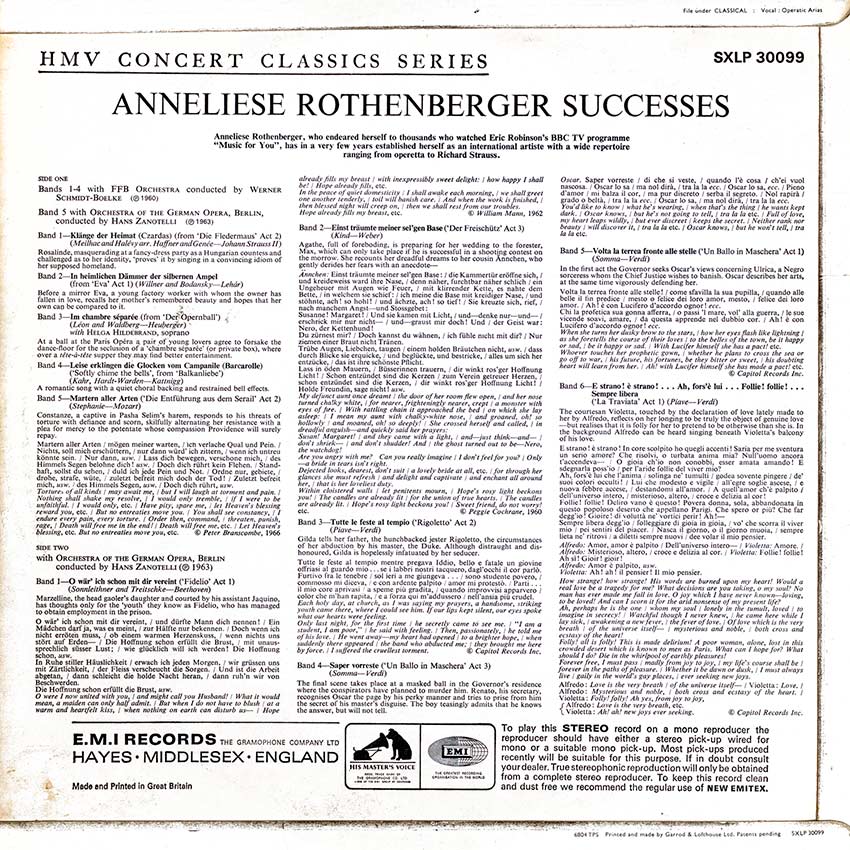
Label: HMV SXLP 30099

